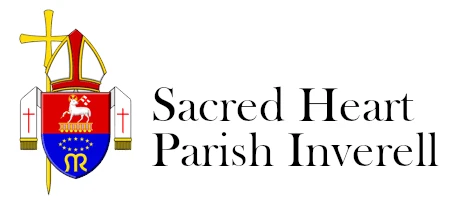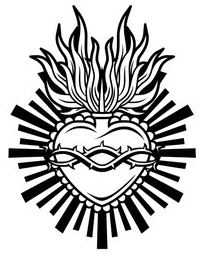21st Sunday of Ordinary Time (Year A) - 27 August
27th August 2023

21st Sunday of Ordinary Time (Year A) - 27 August
“To repent is not to look downwards at my own shortcomings, but upwards at God’s love. It is not to look backwards with self-reproach but forward with trustfulness. It is to see not what I have failed to be, but what, by the grace of Christ, I might yet become.” - St John Climacus
A reflection on today's Gospel by the Venerable Archbishop Fulton J Sheen:
"When Our Blessed Lord came into this most northerly city of the Holy Land, a city that was half Jewish and half pagan, He spoke of the Church He would found. But before doing so, He had to make clear the form of government which would govern it. These forms could be threefold: democratic, aristocratic, and theocratic. The democratic is one in which authority and truth is decided by a vote or an arithmetical majority; the aristocratic is one in which authority is derived from a select few; the theocratic is one in which God Himself supplies and guides the revelation and the truth.
"First appealing to the democratic, He asked His Apostles what was the general popular opinion concerning Him. If there had been a poll or a vote taken basing itself on the fallible judgments of men, what would be their answer to this question?
"‘What do men say of the Son of Man? Who do they think He is?’ (Matthew 16:13).
"The inability of men to agree among themselves concerning His Divinity was revealed in their answer:
"‘Some say John the Baptist, they told Him, others Elijah, others again Jeremiah or one of the prophets’ (Matthew 16:14).
"Human opinion can give only conflicting, contrary, and contradictory answers. The four popular opinions show that Our Blessed Lord enjoyed a high reputation among His fellow men, but that none of them had recognised Him for what He was. Herod Antipas fancied that Our Lord was One animated by the spirit of John the Baptist; others thought He was Elijah, because he had been taken up into heaven; and others, Jeremiah, because some believed that Jeremiah was to come as the precursor of the Messiah.
"Since no Church could ever be founded on a confusion of this kind, Our Blessed Lord now turned to the aristocratic form of government by asking His chosen ones, His little parliament, His apostolic band, their view.
"‘And what of you? Who do you say that I am?’ (Matthew 16:15).
"The appeal here was to all of them who had heard His teachings, had seen His miracles, and had been blessed even with the power of working miracles on others. This higher parliament had no answer—partly because they could not agree among themselves; in five minutes they would be quarrelling. Judas certainly doubted His financial sagacity; Philip doubted His relations with His heavenly Father; and all of them were more or less expecting some secular liberator, who would put an end to the screaming eagles of Rome in their land.
"Then, without solicitation or consent of the others, Peter stepped forward and gave the right and final answer:
"‘Thou art the Christ, the Son of the living God’ (Matthew 16:16).
"Peter confessed Christ was the true Messiah, commissioned by God to reveal His will to men and fulfilling all prophecies and the Law; He was the Son of God, begotten from all Eternity, but also the Son of Man begotten in time—true God and true man.
"Our Blessed Lord revealed to Peter that he did not know this of and by himself; that no natural study or discernment could ever reveal this great truth.
"‘Blessed art thou, Simon son of Jonah; It is not flesh and blood, It is My Father in heaven that has revealed this to thee’ (Matthew 16:17).
"Our Blessed Lord called him first by the name that he had before he was summoned to be an Apostle. Then He called him by the new name He gave him, namely, the Rock, indicating that it was on him, the Rock, that He would found His Church. Peter was addressed by His Lord in the second person singular to indicate that it was not Peter’s confession of Divinity, but Peter himself who would hold primacy in the Church.
"‘And I tell thee this in My turn, that thou art Peter, and it is upon this rock that I will build My church; And the gates of hell shall not prevail against it, and I will give to thee the keys of the kingdom of heaven; And whatever thou shalt bind on earth shall be bound in heaven and whatever thou shalt loose on earth shall be loosed in heaven’ (Matthew 16:18–18)."
(Life of Christ)
Prayer of St Francis of Assisi
All Highest and Glorious God, cast Your light into the darkness of my heart.
Grant me right faith, firm hope, perfect charity, profound humility, with wisdom and perception, O Lord, so that I may always and everywhere seek to know and do what is truly Your Holy Will, through Jesus Christ our Lord. Amen. 🙏❤💐
Food for thought
If your main object is the will of God and the good of your neighbour, you will have great interior freedom. If your heart is straight with God, if it is pure and good, then you will see all things clearly. As people are inwardly, so do they judge outward things. Those who make God the centre of their lives, who conquer themselves and walk uprightly in the way of God are blessed with peace in their soul. Begin by looking to your soul first and then you will be better able to make peace between other people.


